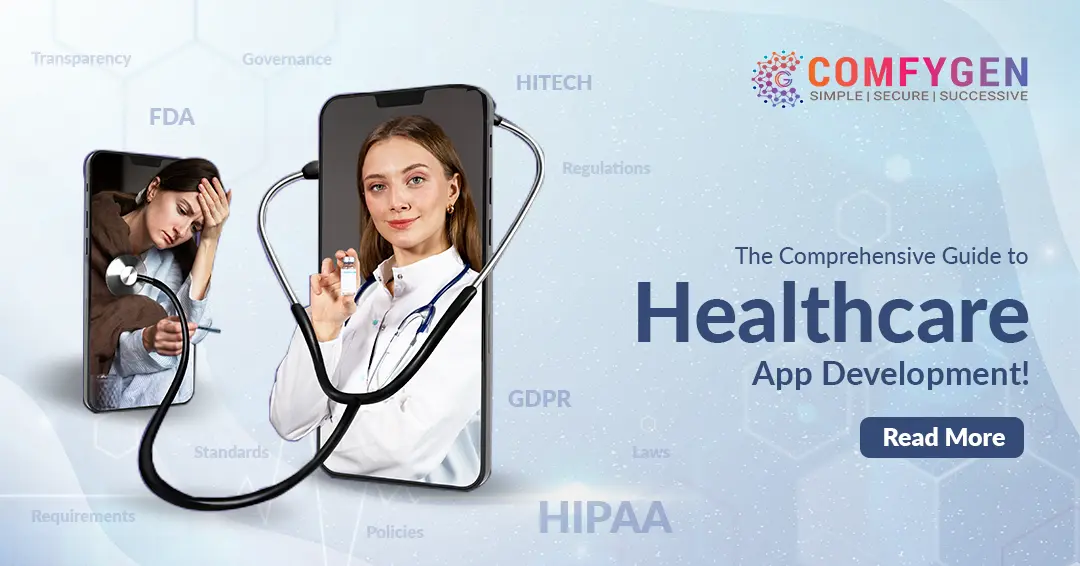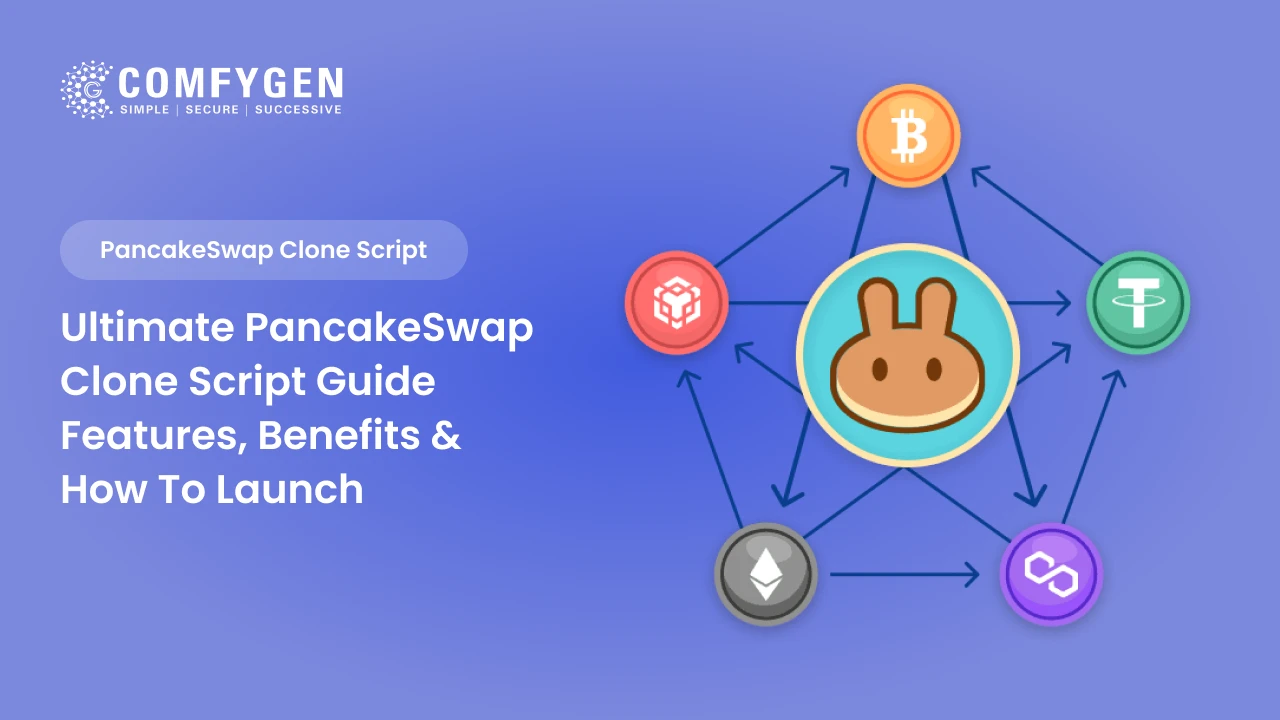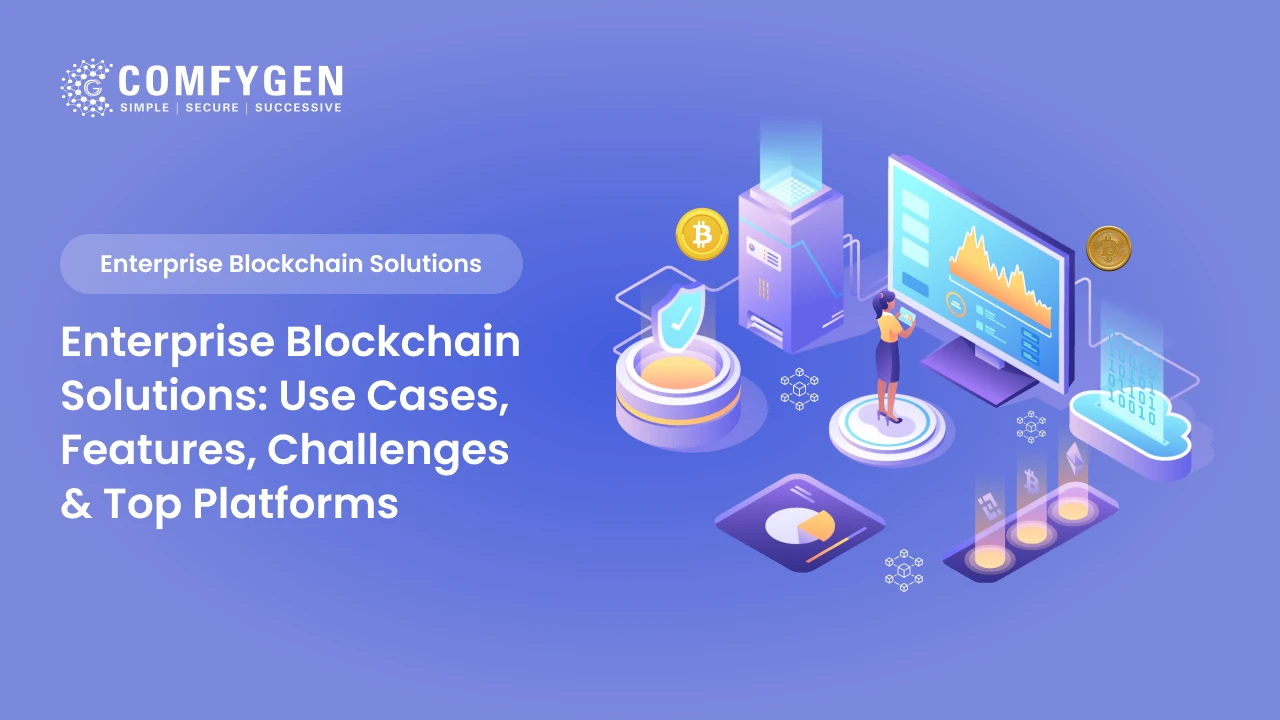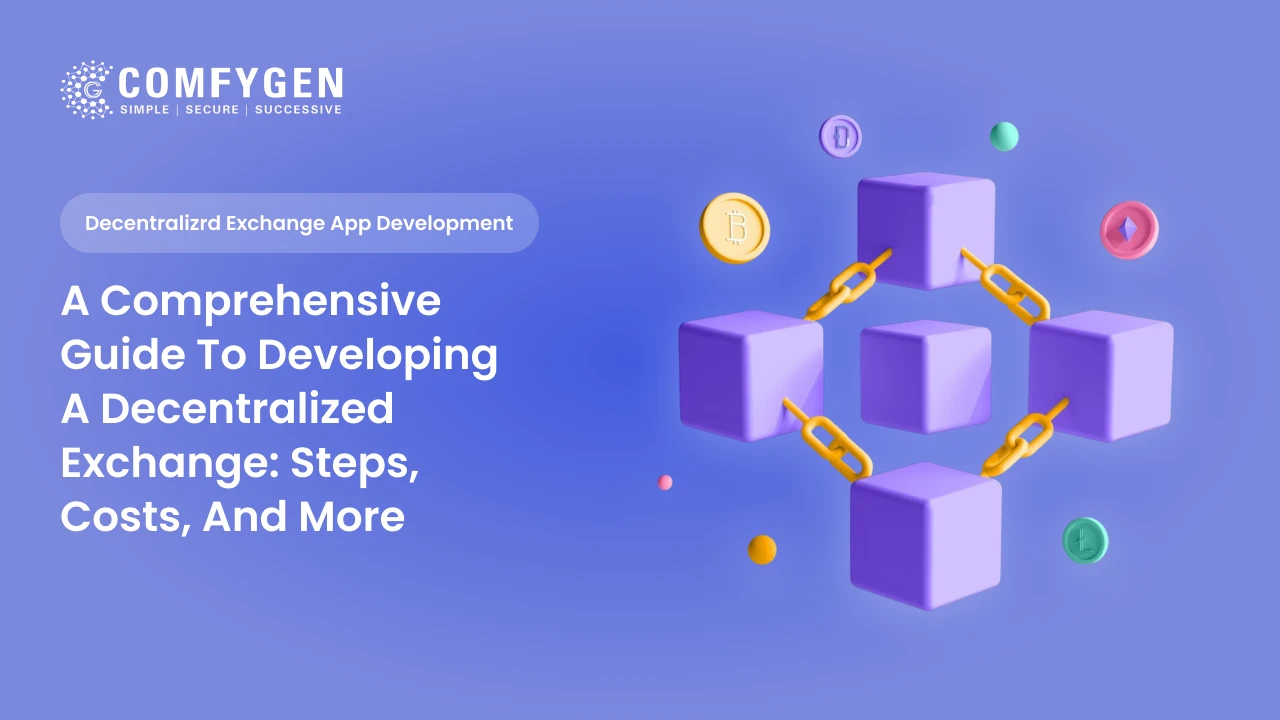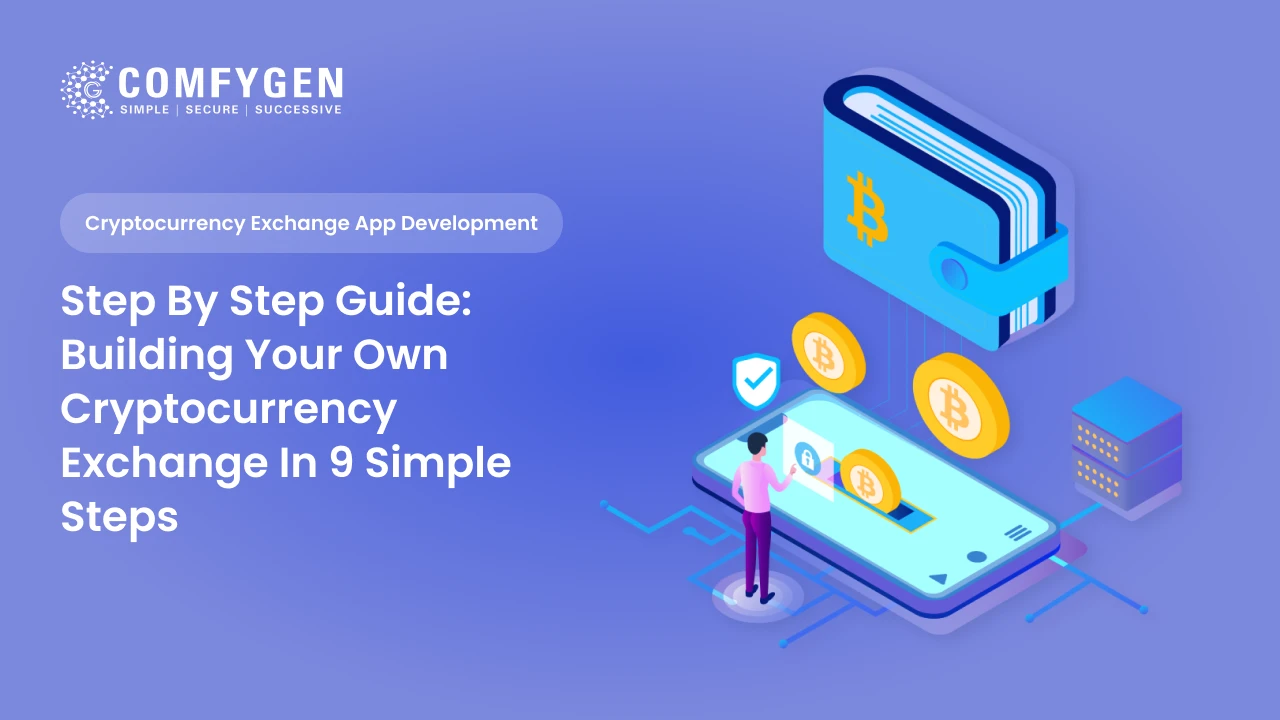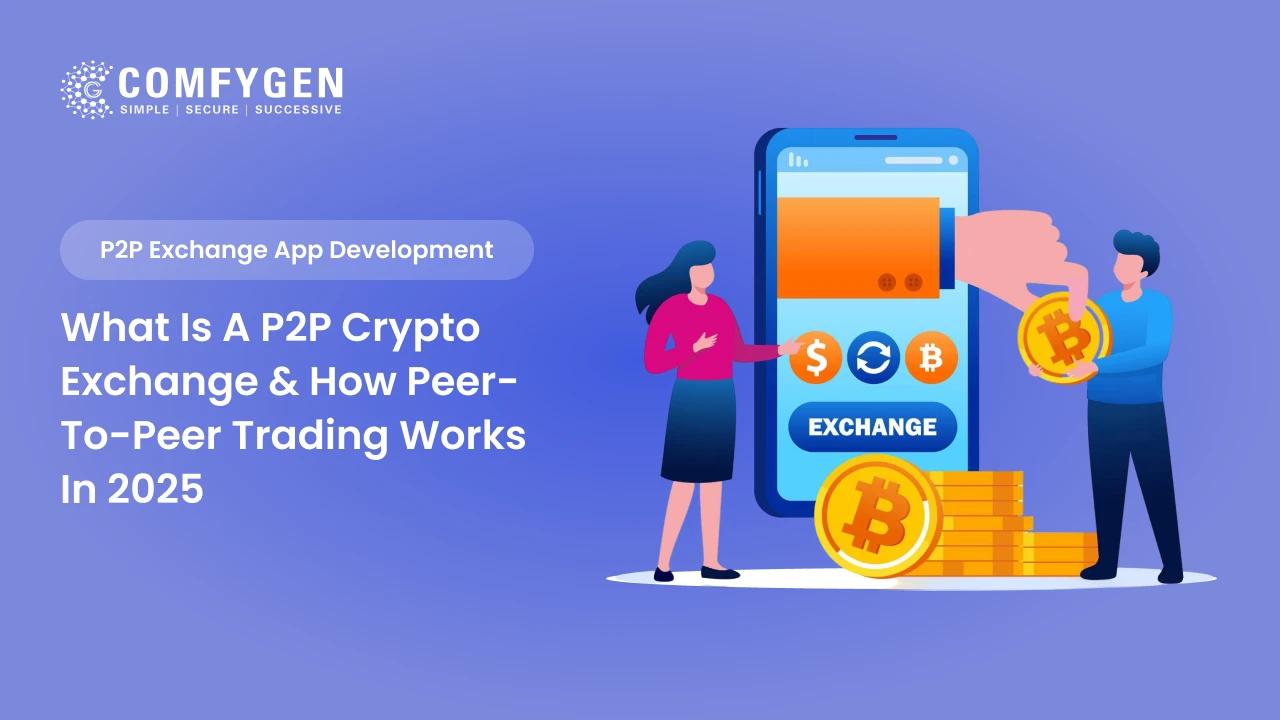The Comprehensive Guide to Healthcare App Development
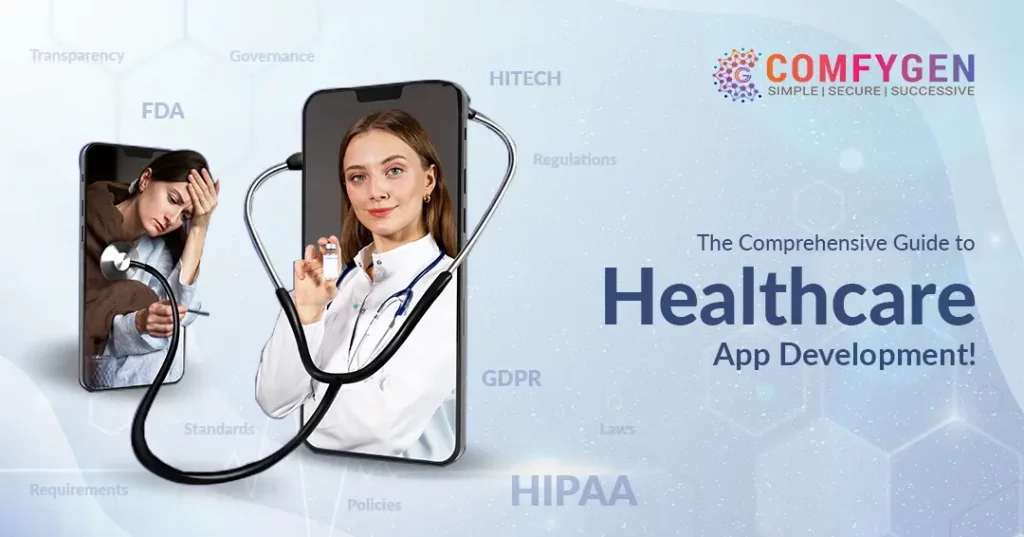
After 2020 Pandemic, the medicinal and healthcare organizations has completely evolved itself with digitization. Not just booking doctor’s appointment, but people are taking treatments through healthcare application’s assistance, and doing a lot more with the help of mHealth apps.
Things have changed dynamically, so here we are talking about the healthcare industry, which has brought impressive and immersive changes via leverages the healthcare organizations and patients to process health treatments through mobile apps.
Yes, this was right! Healthcare app development has evolved the entire industry, where the professionals can provide treatments, diagnose their patients through the healthcare apps only. On the other hand, the patients can book doctor’s appointments, keep records of their treatments, communicate & consult online, etc. These all can happen through healthcare apps.
Based on the concurrent healthcare industry standards, there are startups, mid-sized institutes, and even the large-scale healthcare organizations are taking vast leverages from these applications.
Do you need your business to run smoothly, become cost-efficient, and provide efficient medicinal services to the patients? Well here you must consult with a proficient healthcare app development company to take right and competitive suggestions to become high-standardized in the market.
Before you initiate with the development, we would like to share this blog containing a whole complete guide on healthcare app development. Let’s dive into the information, and learn the market worth, its development process, cost incurred, benefits to obtain for organizations, etc.
Market Stats For Healthcare App Development
Let’s acknowledge the market size and other stats about healthcare app development to know its hype and worth:
- The global app market size was estimated to reach USD $32.42 Billion in 2023. The market is anticipated to grow at CAGR of 14.9% between 2024-2030.
- By 2022, there were 84 Million people who used mHealth apps to monitor their health activities in the US.
- The global digital health market was worth US $175 Billion in 2029, which was expected to grow with a CAGR of 25% between 2019-2025. This market can also crack US $660 Billion by 2025.
- Between 2020-2021, the Google PlayStore had 54546 healthcare apps, and the Apple App Store had 41517 healthcare and medical apps.
- By the end of 2023, the market is expected to reach 861.40 Billion; stated by Fortune Business Insights.
- An article was published by Sensor Tower Inc., which stated that health and fitness apps will witness the surge of 46% in Europe.
- An article by PGS Software in 2021 stated that 44% of US consumers will use health monitoring apps to track their health measures.
- Data Bridge market analysis says that, mobile medical app market is USD $6.89 Billion in 2022, which will rise to USD $50.94 Billion by 2030.
Based on the above stats, studies conducted, and concurrent market surges; it is very clear that Healthcare Industry will take a surge in its dedicated app development to ease the professionals and patients. Demands will not decline, so building mHealth apps is a profitable decision.
What Are Healthcare Mobile Apps?
Healthcare apps are mobile app solutions built to enable the professional doctors and patients to manage healthcare services very seamlessly through these software.
For patients, they can book doctor’s appointments, manage their documents, track their health, chat & consult with doctors online, and do other multiple things through just an app solution.
On the contrary, the professionals can diagnose their patients, monitor how their patients are doing, also organizations can manage their operations, automate the regular hectic manual tasks, etc through the apps.
When we talk about healthcare apps or mHealth apps; it is all about easing the end-users with their tasks, services, diagnosis, and everything.
What is Healthcare App Development?
Healthcare app development means building apps or software, that brings dynamic changes in the industry. Through these apps, one can easily monitor their health, and follow the right health measures to resolve the problems in real-time. These apps allow the health professionals and patients to access the services in just a few clicks and ease their service process.
Consider a few use cases; where one can build health apps for Electronic Health Records (EHR), hospital services, and medical service experience, health monitoring, and even claiming the medical insurance claims. In order to process mHealth app development, it is important to connect with healthcare app development services. The experienced expert healthcare app developers suggest the right plan of actions, cutting edge technologies to use, modern tech-trends to incur, etc. The experts have knowledge, skills, and talents to build robust mHealth apps.
Types Of Healthcare Apps To Build
Acknowledging the types of healthcare apps requires the perspective from both ends; one is healthcare professionals & healthcare organizations, and secondary is patients. Here we have presented a list of healthcare app types based on the perspectives:
Healthcare Apps for Healthcare Professionals
- Telehealth Medicine Apps
Telehealth medicine apps are a kind of digital healthcare service providing apps. The doctors can fix appointments, diagnose their patients, make video calls for consultations, in-app messaging for more detailed treatment possible, etc. These apps are good and convenient for healthcare professionals and patients both; where they do not need physical contacts and yet exchange the services to one another easily.
- Medical Prescription Apps
Medical prescription apps are the ones, from where the doctors can pick right medicines/drugs for patients, create the pack of it based on the patient’s health, and later fix its usage and timings both. Moreover, there are some medical prescription apps; which also allow printing the prescription to ease the patients.
- Medical Record Apps / Electronic Health Records (EHRs) Apps
Medical Record Apps or the EHR Apps are really significant, as these apps keep all the patients documents safe. It enables them to keep a track of their patient’s data to give them more appropriate treatment. These medical documents include details of the patient’s blood pressure, heart rate, medical examination details, diagnosis, prescription, appointments, etc.
- Medical Networking Apps
The doctors and medical professionals stay packed with their routine and tasks. In the busy schedules, there’s no time for them to communicate with other professionals to build good and significant networks. The medical networking apps enable the professionals and experts to communicate, share their patient’s data and figure out the best possible ways to treat their patients.
Read More: How Much Does It Cost to Build a Doctor Appointment Booking App?
Healthcare Apps for Patients
- Doctor Appointment Apps
Through the doctor appointment apps, the patients can check and schedule consultation appointments with the doctor. The patients have the liberage of choosing their own dedicated time based on their convenience and schedules.
- Health Monitoring Apps
You might have used the health wearables, in which users track their health, heart beat, blood pressures, oxygen levels, etc. Similarly there are health monitoring apps, which enable users to track and monitor their health measures continuously. These apps are very helpful, because one can work on their healthy lifestyle via monitoring the lacks in their conditions.
- Mental Health Apps
Do you know, we have mental health apps in the healthcare industry? These mental health apps have therapy sessions, professional consultations, counseling sessions, and even suggest some mental health exercises & practices, which helps in healing the mental traumas and stress of patients. Some of the examples of mental health apps are MoodKit, MindShift, and HeadSpace.
- Medical Education Apps
The major work of medical education apps is to store humongous data of doctors, students, medical professionals, and other medical researches. These apps are valuable for the patients, from where they can find their reliable and suitable doctor’s suggestion to take the treatment.
- Lifestyle Maintenance Apps
The modern changes in lifestyle are also hampering individuals. People are getting sleep deprived, they do not have a healthy lifestyle, not taking proper means, affecting their health measures, etc. Through the lifestyle maintenance apps; one can get rightly suggestions about how to lead a healthy lifestyle. It helps them to be happier and healthy all time, as the users will get notified about things to do promptly.
Read More: A Complete Guide on Doctor Appointment App Development
Benefits of Healthcare App Development
Building healthcare apps can be very advantageous for medical professionals as well as patients. We have shortlisted some benefits of healthcare app development in India. Acknowledge them to make a wise decision:
- Satisfying Patient’s Treatment
With the help of healthcare wearable devices, the patients can track their health measures very soon. With the continuous health monitoring, they can easily identify if anything happens wrong with their health immediately, and take the treatment by the time. This is what makes them take treatment for their health at its earliest, and improve their condition.
- Accessibility with Healthcare Data
The healthcare professionals can track their patient’s health through apps, which improves patient’s monitoring. First the patient’s can get informed about their health problems very earlier, and through that the doctors also get informed initially of any health hazard. Moreover, the professionals can also fetch healthcare data of patients very soon through healthcare mobile applications.
- Better and Real-Time Communication
There are various healthcare apps available on the internet, which allow the patient’s and doctors to connect with each other, chat, and communicate through the online platform. This is how they can have a talk about conditions and improve the overall health of patient’s very soon.
- On-Demand Services
There are several healthcare apps, which fulfills the on-demand needs of patient’s; such as sample sharing, medicine delivery at home, prescription suggestions, etc. The on-demand services will fulfill needs and requirements at the patient’s doorstep, which enable them to have a better experience at their convenience.
Features to Integrate During Healthcare App Development
When you plan for healthcare app development, it is very important to learn about features to implement in that; which are:
Features of Healthcare Mobile Applications for Healthcare Professionals
| Feature | Description |
| Patient Management | View and manage patient profiles, medical histories, and appointment schedules. |
| Appointment Scheduling | Schedule, reschedule, and cancel patient appointments with notifications. |
| Telemedicine | Conduct video consultations with patients. |
| Electronic Health Records (EHR) | Access and update patient health records electronically. |
| Prescription Management | Create, send, and track electronic prescriptions. |
| Medical Imaging | View and analyze medical images and test results. |
| Lab Results Integration | Receive and review lab results directly within the app. |
| Clinical Notes | Write, store, and share clinical notes securely. |
| Patient Communication | Secure messaging for communication with patients. |
| Billing and Invoicing | Manage billing, generate invoices, and track payments. |
| Analytics and Reporting | Generate reports on patient data, clinic performance, and other metrics. |
| Task Management | Create and manage to-do lists and reminders. |
| Drug Information Database | Access a comprehensive database of drug information and interactions. |
| Continuing Medical Education (CME) | Access resources and courses for continuing education and certification. |
| Interprofessional Collaboration | Secure communication and collaboration tools for discussing cases with colleagues. |
| Notifications and Alerts | Receive real-time alerts for patient emergencies, lab results, and reminders. |
| Regulatory Compliance Tools | Ensure compliance with healthcare regulations (e.g., HIPAA). |
| Voice Recognition | Use voice commands for note-taking and navigation. |
| Integration with Wearables | Sync with wearable devices for real-time patient health monitoring. |
Also Read: Features of Doctor Appointment App Development
Features of Healthcare Mobile Applications for Patients
| Feature | Description |
| Profile Management | Create and manage personal health profiles, including medical history and allergies. |
| Appointment Booking | Schedule, reschedule, and cancel appointments with healthcare providers. |
| Telemedicine | Access video consultations with healthcare professionals. |
| Health Records Access | View personal electronic health records and lab results. |
| Prescription Management | Receive and manage electronic prescriptions. |
| Medication Reminders | Set reminders for taking medications. |
| Symptom Checker | Input symptoms to get preliminary assessments and advice. |
| Health Tracking | Track health metrics such as weight, blood pressure, and glucose levels. |
| Wellness Programs | Access personalized wellness programs and health tips. |
| Secure Messaging | Communicate securely with healthcare providers. |
| Notifications and Reminders | Receive notifications for appointments, medication refills, and health tips. |
| Billing and Payments | View bills, make payments, and track insurance claims. |
| Health Education Resources | Access articles, videos, and other educational content on various health topics. |
| Emergency Services | Quick access to emergency contacts and services. |
| Fitness Integration | Sync with fitness trackers and wearables for activity monitoring. |
| Family Health Management | Manage health information and appointments for family members. |
| Lifestyle and Nutrition | Access diet plans, recipes, and lifestyle recommendations. |
| Community Support | Connect with support groups and online health communities. |
| Doctor Reviews and Ratings | View and provide ratings and reviews for healthcare providers. |
| Language and Accessibility | Features to support multiple languages and accessibility options for users with disabilities. |
Considerations Before Healthcare App Development Starts
Consider the given factors before initiating the healthcare app development:
-
Regulatory Compliance
Before starting healthcare app development, understanding and adhering to regulatory requirements is crucial. Regulations like HIPAA in the U.S. ensure patient data privacy and security. Non-compliance can lead to severe penalties and loss of user trust. Familiarize yourself with relevant laws and ensure your app design and data handling practices meet these standards. -
User-Centered Design
A successful healthcare app must be user-friendly and accessible. Consider the needs of your target audience, which may include patients, doctors, and caregivers. Conduct thorough user research to create an intuitive interface and seamless user experience, ensuring that even non-tech-savvy users can navigate the app with ease. -
Data Security
Protecting sensitive health information is paramount. Implement robust security measures, such as encryption, secure authentication methods, and regular security audits. Ensuring data security not only protects user information but also builds trust and credibility, which are essential for the app’s success in the healthcare industry. -
Interoperability
Your app should be able to integrate with other healthcare systems, such as electronic health records (EHRs) and other medical software. Ensuring interoperability facilitates seamless data exchange, improves workflow efficiency for healthcare providers, and enhances patient care by providing comprehensive health information in one place. -
Scalability
Plan for the future by designing your app with scalability in mind. As your user base grows, your app should be able to handle increased load without compromising performance. Consider cloud-based solutions and modular architecture to easily add new features and scale infrastructure as needed, ensuring long-term viability and user satisfaction.
Also Read: Pros And Cons of Doctor Appointment App Development
Step-By-Step Ways To Build Healthcare App Development
Healthcare app development process requires some steps to be followed. Here are the steps you must acknowledge:
-
Analyze Requirement and Market Research
Foremost, you must analyze your own ideology. Understand what problem you want to resolve, which is your targeted audience, how you will fetch their attention, what’s the monetization process, etc. Also, acknowledge the market competition. Learn about others who are working on the same niche or same problem, how they are coping with market challenges, how they became the brand, how they monetized and became so recognizable, etc. it’s important to be clear with perspective and market before the development takes place. -
Define Features and Functionalities
Once you know exactly what to build and who’s running best in the marketplace with similar idealistic products, now understand what’s best you can do with your own product or services. Figure out some new and engaging features to implement in your own product, which are definitely different from the existing ones in the market. Brainstorm the idea and analyze the requirement of the market to create a list of features and functionalities best suits your healthcare app development, and will also engage users in the industry. -
Design UI/UX
Designing the app means making it very visually appealing. Create the prototype of your idealistic healthcare mobile app solutions. Learn what’s more to implement, what’s lacking, and how it engages the traction from end-users. Work on the wireframing, add some custom elements and UI/UX designs, make it visually paired up with your target audience to stick in the place. -
Develop a Prototype/MVP
Time to prepare backend and frontend during healthcare app development. You must be strong with the backend technologies; because that’s going to be the support system of your application. Create a strong server support, implement the technologies firmly, use the modern tech-stacks for more attention grasping, secure the database, and do more. Also focus on the frontend, meaning user interaction. Make sure the healthcare mobile app development should complete with seamless navigational support and conveniently usable to the users. -
Test Your Healthcare Mobile Application
Here the Quality Analysts (QAs) will use the healthcare app in different devices; such as iOS app development, Android app development, browsers, tablets, etc. They will analyze how the application is working, how the navigation and user-interface is functioning, and the implemented features executing appropriately. Also, they need to ensure if the application has any lacks or technical issues to resolve. Testing is to ensure that the mobile app is ready to launch. -
Deploy Across Various Platforms
Based on your conversation with clients, now it is the time of deployment. The healthcare app development company will launch the iOS App Store, Android PlayStore, or Cross-Platform on both. That completely depends upon the targeted audience and client’s choice. The company will complete documentations, and fulfill the entire deployment process. -
Provide Ongoing Support & Maintenance
After the launch, the custom healthcare app development company also provides post deployment services (on-going support and maintenance. During the post deployment services, the company will identify how the application is receiving responses from the marketplace, how the users are interacting, what features should be added, or which one to remove, any alterations to make, etc. This service is all about making the app compatible and engageable to the audience.
Do You Have an Unique Healthcare App Idea?
Looking to validate your idea or consult with an expert? Get a free consultation now!
Future Emerging Technologies in Healthcare Apps & Use Case
It would be much better and engaging if you integrate the given listed modern tech-trends in healthcare app development:
-
AI & ML
Artificial Intelligence (AI) and Machine Learning (ML) in healthcare apps enable predictive analytics, personalized treatment plans, and early disease detection. AI algorithms can analyze vast amounts of medical data to identify patterns and make accurate diagnoses, while ML improves over time, enhancing the precision of healthcare applications and reducing human error. -
Internet of Things (IoT)
The Internet of Things (IoT) in healthcare connects medical devices and sensors to monitor patient health in real time. IoT devices collect and transmit data such as heart rate, glucose levels, and medication adherence, providing continuous, remote patient monitoring, improving patient outcomes, and enabling proactive healthcare management. -
Cloud Computing
Cloud computing in healthcare offers scalable data storage and powerful processing capabilities. It allows healthcare providers to access patient records, share information securely, and collaborate in real time. Cloud-based systems support telemedicine, streamline operations, and ensure compliance with data privacy regulations, ultimately enhancing patient care and operational efficiency. -
Blockchain Technology
Blockchain technology in healthcare ensures secure and immutable patient data records. It enhances data interoperability, streamlines transactions, and reduces fraud. By providing a decentralized and transparent ledger, blockchain technology improves the security of medical records, facilitates secure sharing among providers, and supports traceable drug supply chains. -
AR/VR
Augmented Reality (AR) and Virtual Reality (VR) in healthcare enhance medical training, patient education, and treatment plans. AR can overlay diagnostic information during surgeries, while VR provides immersive simulations for training surgeons and therapists. These technologies improve precision, reduce errors, and offer innovative therapeutic experiences for patients. -
Metaverse
The Metaverse in healthcare refers to virtual environments where patients and healthcare professionals can interact. It enables virtual consultations, therapy sessions, and health education in immersive 3D spaces. This technology enhances accessibility to care, especially in remote areas, and provides a novel way to engage patients in their health management. -
Chatbots
Chatbots in healthcare offer 24/7 patient assistance, providing information, scheduling appointments, and answering health-related queries. They use natural language processing to understand and respond to patient needs, improving access to care, reducing the workload on medical staff, and enhancing the overall patient experience with timely support and information.
How Much Does It Cost To Develop A Healthcare App In India?
The tentative cost for healthcare app development ranges between $50000-$500000. This is an estimation, but actual cost to build a healthcare app entirely depends upon some factors. There are many things which cost differently during the development process, so consider them and also consult with a healthcare app development company to acknowledge the cost of app development for your upcoming project.
Here are some factors we are mentioning, that you consider when evaluating the healthcare app development cost:
-
App Complexity
The complexity during the mobile app development process is a major cost determinant factor. If you are building a basic mHealth app with basic features and functions implemented, that will cost an average app development cost. On the contrary, if you demand some extra features, custom functions, engaging elements, advanced tech-stacks integrated, and more; the extra requirements will cost you extras in that. -
Mobile App Development Company Location
Do you know, every mobile app development company from different locations costs differently? The cost of app development in the US will be higher compared to the cost of top healthcare app development company in India. Therefore, you must acknowledge the geographical boundaries along other aspects while hiring the mobile app developers to understand which is right to choose for your project. -
Regulatory Compliances
Ensuring that your app complies with healthcare regulations such as HIPAA, GDPR, or other local laws can add to development costs. Compliance requires thorough knowledge of legal standards, additional security measures, and possibly, certifications. These requirements often necessitate additional resources and specialized skills. -
Design and User Experiences
Investing in designs plays a vital role in healthcare app development costs. Adding customization in user-interface (UI) and user experience (UI) will add more cost to it. If you add some custom designing elements, implement animations, and try making it more visually appealing, that will add extra cost to development. -
Post Deployment Services
If you take post-deployment services; like on-going support and maintenance for the application after launch – that will also cost you extra. The cost quotation for healthcare app development does not include after launch support services. If someone wants to keep an eye on the performance of the app and make necessary changes when required; that will cost you extra likewise.
Ready to Build Your Own Healthcare App?
How Comfygen Can Help Build Healthcare Mobile Applications?
Comfygen is an experienced mobile app development company, which can fulfill one’s tailored needs and goals. We acknowledge the unique ideas of clients. Use all the possible & required security health measures, follow right practices, and try our best to build a user-friendly app solution. Also, we ensure to follow all the regulatory compliance and standards; such as HIPAA, GDPR, and securing the patient’s data. Our developers use the best technologies and even implement some modern trends to make the healthcare app engaging to the market.
If you are here at Comfygen, we assure you will be receiving end-to-end healthcare app development services fulfilling the needs and requirements of the clients, their businesses, and final purposes.
- Transparency with clients during development
- Customer support is available 24*7
- Quality services at the right cost
- Use of modern tech-trends to make it up to the mark according to market standards
Also Read: Top 10 Mobile App Development Companies in Jaipur
Final Thoughts
For the healthcare app development; you need proper ideation, market analysis, planning, adherence to the right methods and healthcare compliances standards, and more. There are many key considerations one must acknowledge when building the healthcare app solutions.
When building such an mHealth app solution; it is advisable to connect with the healthcare app development company to suggest something better. One can also consult with Comfygen, which explains the right things to do. With the right approach and proficient expertised assistance; you can build a really good and efficient healthcare app solution.
Frequently Asked Questions (FAQs)
What types of healthcare apps are there?
How do healthcare apps improve patient care?
What are the essential security measures for healthcare apps?
How do healthcare apps ensure data privacy?
What are the challenges in developing healthcare apps?

Mr. Saddam Husen, (CTO)
Mr. Saddam Husen, CTO at Comfygen, is a renowned Blockchain expert and IT consultant with extensive experience in blockchain development, crypto wallets, DeFi, ICOs, and smart contracts. Passionate about digital transformation, he helps businesses harness blockchain technology’s potential, driving innovation and enhancing IT infrastructure for global success.
Based on Interest
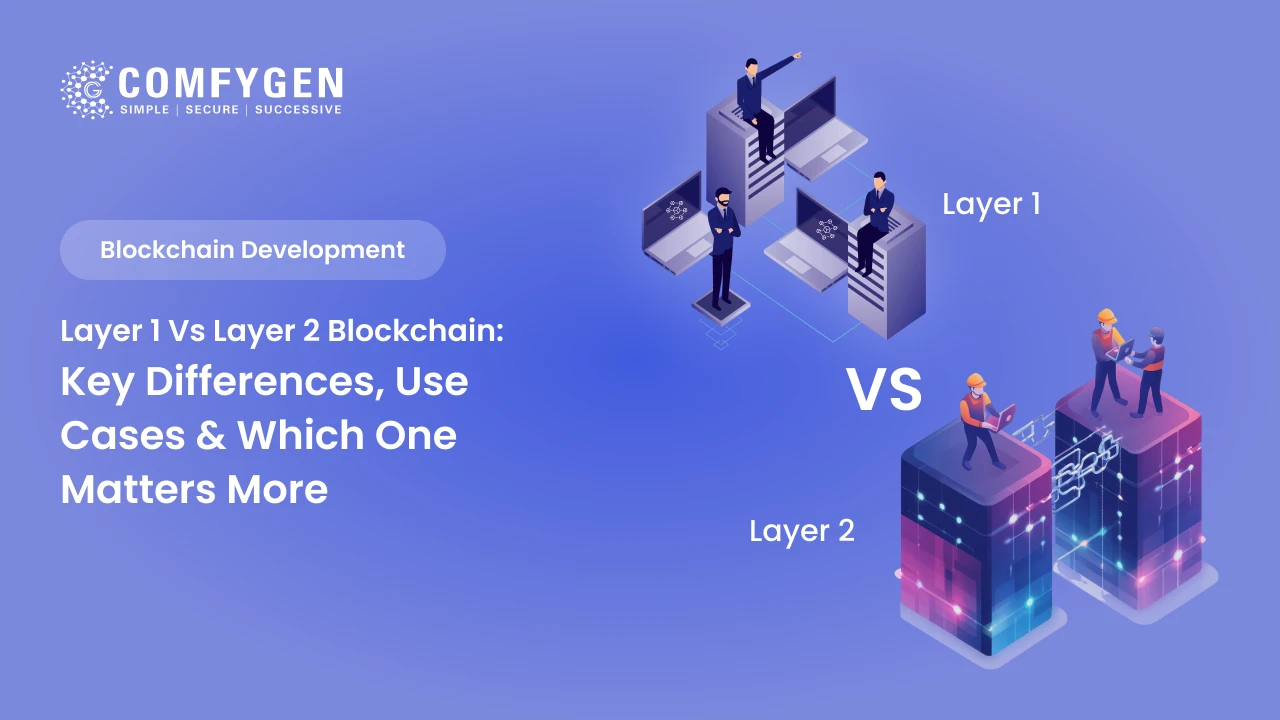
Layer 1 vs Layer 2 Blockchain: Key Differences, Use Cases & Which One Matters More in 2025
Introduction Blockchain technology, once the exclusive domain of cryptocurrencies, has now evolved into a robust tool for various industries, including finance, healthcare,…

